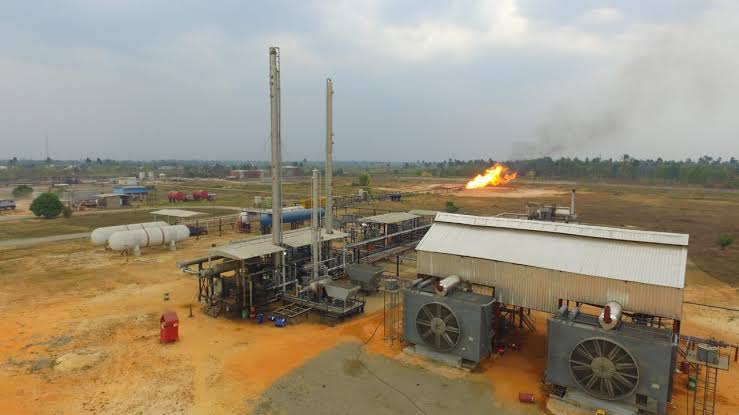The indefinite nationwide strike directed by the leadership of the Organized Labour, has grounded the technical commissioning of the 300MMscfd capacity Kwale Gas Gathering (KGG) and injection facility by the Federal Government.
A statement to Channels Television by the Nigerian Content Development Monitoring Board (NCDMB) on Sunday, said the formal commissioning ceremony of the facility, initially slated to be performed by the Minister of State for Petroleum Resources (Gas), Ekperikpe Ekpo on June 6, 2024, has been put on hold due to the commencement of the nationwide strike by the labour union on Monday.
After a four-hour meeting with the leadership of the National Assembly on Sunday evening in Abuja, the leadership of the Organised Labour said there was no going back on the nationwide industrial action slated to start Monday.
“For now, we don’t have the power to call off the strike, tomorrow (Monday) morning, the strike will kick off as we take their (NASS) plea asking us to call off the strike to our various organs,” said Festus Osifo after the meeting with NASS leadership.
The 300MMscfd Capacity Kwale Gas Gathering (KGG) and injection facility in the Niger Delta, is a project by a Joint Venture company between Xenergi Limited and NCDMB Capacity Development Intervention Company, Nedogas Development Company Limited (NDCL), in collaboration with the NNPC Gas Infrastructure Company (NGIC), a subsidiary of the Nigerian National Petroleum Company (NNPC) Limited.
The KGG facility was designed to handle stranded gas resources in Nigeria’s OML 56 oil province, by providing the opportunity for independent operators in the area to monetise natural gas from their fields through the gas gathering, compression, injection and metering infrastructure of the KGG for quick market access.
The KGG hub, which has been tied into the NGIC-owned and operated 48-inch OB-3 gas trunk line, is now fully commissioned with gas injection capacity, totalling approximately 50 MMscfd comprising 20MMscfd from the Nedogas Plant, located 3km away in Energia’s Ebendo field and another 30 MMscfd coming from the Matsogo field operated by Chorus Energy Limited. Injected gas volumes are gradually and steadily being ramped up.
The project represents a significant milestone in Nigeria’s decade of gas initiative and a major achievement in the quest to provide gas into the OB3 trunk line and monetise natural gas resources from the OML 56 producer cluster.
With the successful injection of gas from the Energia/Oando JV and the Chorus-operated Ebendo and Matsogo fields respectively into the OB3, the KGG Facility will receive additional gas from nearby fields including those operated by First Hydrocarbon Nigeria (FHN), Pillar Oil, and Midwestern Oil & Gas, all aimed at positioning KGG as a fully-fledged gas-gathering facility and hub with single point injection of up to 300 MMscfd of gas into the OB3 via the KGG tie-in.
The plan is to expand the capacity of the KGG facility to 600 MMscfd in the second phase.
In addition to the gas delivery obligations of the facility, the KGG will also be supplying the Delta State Economic Zone (DSEZ) from an integrated supply node within the manifold at the hub.
Speaking about the project, the Executive Secretary, NCDMB, Felix Ogbe, enthused that the success story of NEDOGAS at Kwale, Delta State, could be replicated in other oil- and gas-producing communities to minimise gas flaring. He declared the board’s readiness to continue collaborating with the company. “Their model should be extended to other parts of the country where gas flaring is continuing. They have shown that with the modular system, we can quickly remove flaring from our operations in Nigeria.”
The Managing Director of NDCL, Debo Fagbami, explained that with the completion of the first phase of the KGG facility, the proof-of-concept to readily monetize gas, has now been established to the extent of eradicating the pain of seeing an invaluable resource being wasted.
Rather than just being concerned about ending gas flaring, Ogbe said the project presents opportunities to harness the potential of the flare sites from these oilfields, which according to him, will ultimately convert a “wasting” resource into an economic asset used to generate cleaner energy.
With an estimated 180 billion cubic feet of proven natural gas reserves, Nigeria has the ninth-largest concentration in the world.
However, the country continues to flare significant quantities of its associated gas, which has relegated the health and environmental well-being of Nigerians to the background for over 60 years.
According to the federal government, natural gas remains a relatively clean fossil fuel, and represents a viable transition to renewable energy which plays a pivotal role in powering the growth of developing economies like Nigeria.
Ogbe added that the KGG facility will create hundreds of direct and indirect jobs for indigenes of the host and nearby communities.
The labour unions had said the current minimum wage of ₦30,000 can no longer cater to the well-being of an average Nigerian worker, lamenting that not all governors are paying the current wage award which expired in April 2024, five years after the Minimum Wage Act of 2019 was signed by former President Muhammadu Buhari. The Act should be reviewed every five years to meet with contemporary economic demands of workers.
READ ALSO: AHL Gas Processing Plant 2: Investments in Delta safe, secure – Oborevwori



